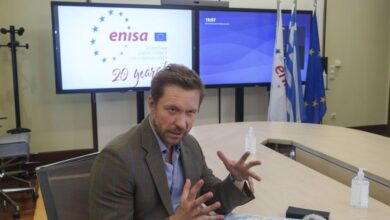SMU Prof and SENTRIQS Team Up on Quantum Cybersecurity With $110K Air Force Grant » Dallas Innovates

Dr. Klyne Smith [Photo: SMU]
Southern Methodist University (SMU) in Dallas announced earlier this year that Klyne Smith, clinical associate professor of computer science at SMU Lyle, and SENTRIQS, a cybersecurity company, had been awarded a $110,000 grant from the U.S. Air Force to address cybersecurity challenges posed by quantum computers.
Smith will provide insights to research and identify potential military use cases for SENTRIQS, a Georgia-based startup founded in 2023. According to SMU, the “ultra-secure” messaging and collaboration platform delivers quantum-safe communications for businesses and government organizations.
Smith said he looks forward to partnering with SENTRIQS to support its effort in “developing a cutting-edge cyber technology that will add a new layer of protection for our government services.” In a statement, Smith said the company has proven its focus on security, quality, performance, and user experience in developing its solution over the last couple of years.
The grant, part of the Small Business Technology Transfer (STTR) program, is a competitive government-funded initiative that encourages small businesses to participate in federal research and development along with nonprofit research institutions.
Smith will leverage his industry insights to research and identify potential military use cases for the technology, as well as introduce military prime contractors who might participate in future STTR projects. Prior to teaching full-time, he led technical solutions delivery for major companies across various industries worldwide.
A data systems expert, Smith has over 30 years of experience in IT and telecommunications, working for companies like IBM, Caesars Entertainment, Alcatel-Lucent, Amdocs, and Ericsson.
Founded in 1925, the SMU Lyle School of Engineering is one of the oldest engineering schools in the Southwest. The long-standing institution continues to play a crucial role in advancing technological research and education.
According to SMU, quantum computing is considered a revolutionary technology that harnesses the principles of quantum mechanics to process data at speeds a million times faster than supercomputers. As technology progresses, concern is growing around cybersecurity and the ability of these powerful machines to break modern cryptography, making current data encryption methods obsolete.
![]()
Get on the list.
Dallas Innovates, every day.
Sign up to keep your eye on what’s new and next in Dallas-Fort Worth, every day.








